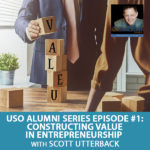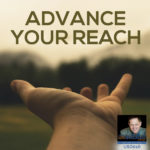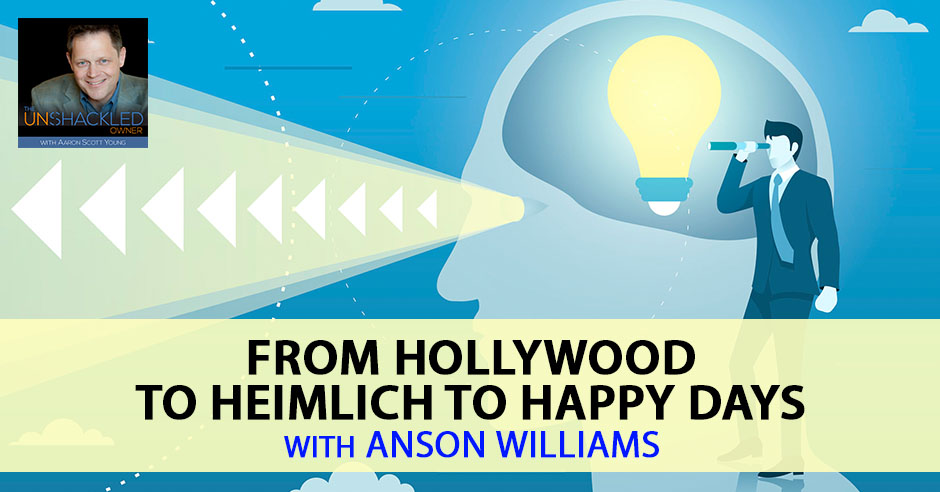
What makes an entrepreneur? Entrepreneurs see the world differently. It’s like they’re putting on a different lens and when they look around, they don’t see all the clutter and all the mess. They see the lack and the need, something that’s not being done well, or there’s something that people want. Happy Days star Anson Williams discusses identifying true entrepreneurial spirit, being “in” your business rather than “of” it, how to find opportunities all around you, and the attitude it takes to make true progress with what you have right now.
Listen To The Episode Here
From Hollywood To Heimlich To Happy Days with Anson Williams
I’ve got a real treat for you now. I was at an event and I looked across the room there was one of the heroes from my teenage years. There was a program on that almost set the whole week for me. I think it did for a lot of us. We based our schedule around Happy Days on ABC and everybody remembers Richie, Potsie, Ralph Malph and Fonz. I looked across the room and Potsie Weber was there. I walked up and introduced myself to Anson Williams, who was one of the stars of that show from day one until they turned the lights off. We had a good chat and I learned about some of his entrepreneurial stuff. The more we talked, the more I knew I had to have him here on the show. Anson, welcome. It’s nice to have you here.
It’s great to be on. Thanks for having me.
This program is about helping entrepreneurs anywhere from people who are trying to feel something and they want to go after it and they’re trying to either find the courage or those little gold nuggets that are going to help them or to people who are quite successful reading this. We’re going to talk more about philosophy and what makes an entrepreneur. We’ll talk about the products you’re working on, how you’ve evolved and all of that. We have to deal with the elephant in the room first. The elephant in the room is one of the things that we find on this program that’s a common theme to people who are successful, people who have done a lot of cool things, a lot of diverse things having some interesting origin story. Let’s talk a little bit about you. Where were you born? What was your family situation? Did you have siblings? How were your mom and dad? Give us a little hint of as Anson Williams, how you grew up as a child?
I started life pretty much like everybody else, maybe even a little less. My dad was an army vet. I was born in East Los Angeles, which is a lower lifestyle. Back then, America was a little fair. The GI Bill was great. We ended up getting a home in Burbank, California with three bedrooms, one bathroom. He had a job and never had more than $100 in the bank. From my first memory, I had to earn anything special I wanted in life. I had to make the money. If I wanted a dog, I had to earn the money for the dog food, doing chores. Nothing came for free. It just wasn’t part of our lives and I didn’t even question it. It’s part of the responsibilities and you move forward.
At a very young age, I just had these instincts. When my dad was in college, he graduated from Cooper Union in New York. He was a graphic artist. His big dream was to become an artist. As an amateur, he was very good but never became a professional. He went into tech illustrating as the years went by. During college, he had created cartoon stationary. He knew how to create it. He had it all in these little packets in this big old box in the garage but he didn’t know how to sell it. I was nine years old and my dad was fixing the old car in the garage because he couldn’t afford a mechanic. I happened to find the stationary and he told me the story. Then he came home one day and I gave him a pile of money. I had gone house to house selling his cartoon stationary and sold it all. He was dumbfounded.
When I was twelve years old, my best friend, Jeff Shredder, who was a polar opposite to me, ended up going to Caltech. He was a scientist, an egghead. For example, he would say to me as a kid, “I figured out how to get to the moon.” My response would be, “How long will it take?” He would say, “Three days.” I’d say, “Too long.” The details were boring. He went into Junior Achievement, which is still around. It’s a club where you create a product, manufacture the product and sell the product. It’s for young entrepreneurs. It gives you a lot of basics of the whole process. I’ve forgotten what the product was, but he was a major part of creating it. He couldn’t sell it, so I made a deal with him. They also paid a percentage of sales to each kid. I told Jeff, “I’ll be you for 10% of your take.” I became him to sell his junior achievement product door-to-door and he was a top salesman.
Then another time, not much longer than that, my other good friend was Howie Schwarzman. This is a very good example of an opportunity that’s right in front of you that creates such long-term benefits. This happened again at twelve years old. Howie owned one of those printing presses that you work by hand. I like to do little business cards. In his garage, he had his printing press and you had to hand set the type and all that. I started working with Howard on his printing. I’d help him set the type, then I’d go out and sell business cards to Downtown Burbank. We had a very little business going.

Entrepreneurial Spirit: Look for opportunities that create long-term benefits
Then one day, I’ll never forget when I was walking down San Fernando Road, I turned up the street and there was this big sign, “OH Printing.” For some reason, I walked into OH Printing and the owner was there. He came up and for some reason, I introduced myself. I said, “We’re in the same business.” I showed him the business cards that we did and he laughed. He said, “Anson, I’ll tell you what I’m going to do. Here’s what we do here.” They do everything there, banners, posters, flyers. He said, “I’m going to give you a professional discount. Anything you bring to me, I will give you 20%.” I figured it out. It’s about 80 times more than what we’re making with the little business cards. I went back to Howie, “Stop the presses. We’re done with the set and type.” I showed him the samples OH Printing gave me and we both got very excited. At that time, JCPenney was right there in San Fernando Road in Burbank, a very old JCPenney. I said, “Howie, we’re going to get JCPenney’s printing account.” He goes, “We’re going to go in there. Let’s go get him.” We walked into Penney’s. We walked up these old wooden steps to the second floor of the office area. We went up to the secretary and we asked to see the manager. She thought it was very cute. He happened to be there and allowed us in his office.
I started to put out the materials and explained how great it would be to do JCPenney’s printing, not having a clue what I was talking about. He started laughing and said, “I’m not in charge of printing for JCPenney. It’s a huge company. However, I just bought a beer and a sandwich shop next to the Burbank Airport. I’m having a grand opening and I need flyers. Can you guys do that?” We went, “Can we do that?” I said, “What do you need?” He writes out what he needs. He said, “Can you bring me a sample?” We run to OH Printing, which was like a block away. He was so nice. He instantly went in there and made up a quick flyer with all the information. He gave us a price. We run back and got $72.50. He hired us. We got 20% of $72.50 and made the flyers. We had a business so long I was making $25 to $50 a month at twelve years old, thirteen years old being a middle person for printing.
What year was it? When were you twelve?
‘60 or ‘61.
That was not bad money for a kid. It was great money. I remember if you were making $800 a month, you are solidly in the middle-class adult driving a nice car.
It showed you that we saw an opportunity. We did everything right. Off the air, we were talking about what is an entrepreneur and we kept relating to a feeling. It’s just a feeling and you’re born with this instinct. You see opportunity and that doesn’t mean you see greed. One of the worst individuals in the world is a greedy entrepreneur. They take and don’t give back. That’s not the purpose of being an entrepreneur. The purpose of being an entrepreneur is to contribute. It’s not to win, it’s to contribute. Just like you have a God-given gift to success, you have a God-given gift of creating something from nothing that echoes out for more opportunity for others and it trickles down to so many important areas. That is the purpose of an entrepreneur, not being a big shot and not, “Look what I do.” That’s not the purpose. You have this God-given gift of creating success to create success and to make people’s lives better. That is our purpose.
There’s no getting around that entrepreneurs see the world differently. It’s like they’re putting on a different lens and when they look around, they don’t see all the clutter, all the mess. They see there’s a lack, there’s a need, here’s something that’s not being done well or there are people who want something. From a philosophical point of view, I think that entrepreneurs think, “Why not me? Somebody’s going to do this, why shouldn’t I do it?” Just like you going up to JCPenney’s to the manager up those old wooden creaky steps to not knowing the vastness of that chain of stores, but somebody’s going to do their printing. Why shouldn’t it be me?
It’s not overthinking it. I didn’t intellectualize it at that age. I felt it. I knew there was an opportunity. I wasn’t surprised. Who would have thought that it would be that opportunity? It’s another entrepreneurial story. It’s pretty interesting because I wouldn’t have made it in show business without these instincts. Honestly, behind the camera, I’ve never felt any limitations. In front of the camera, I was very limited as an actor. I had some comedic personality and all this, but as an actor, a lot of better people. I knew I would make it. I didn’t know how. I didn’t know what, but I just went with the gut. I got a replacement job in Hollywood at a show called Victory Canteen. I thought, “This is it. The world’s going to come to the theater and see me.” I was a replacement and the cast told me that the only people who came here are old age homes in buses. No one is going to come in this theater to help your career and they were right.
I thought, “If the mountain doesn’t come to you, you go to the mountain.” Back then there were three top theatrical agencies. There was ICM, IFA and William Morris. At IFA, I could find a place for free parking, so I went there. I said, “I’m going to IFA and convince these agents to come to see this show. IFA handled Jane Fonda and Marlon Brando at that time. They were one of the biggest in the world. They were in this big building, the fifth floor. Unannounced I walked in there, I went up to the fifth floor and very smoothly went to the receptionist and said, “I’d like to see an agent.” She said, “Do you have an appointment?” I go, “No, when someone’s free I’ll wait.” She goes, “Sir, you needed an appointment, please.” I said, “I’m sure someone will have some time. I’ll just sit here.” I did a sit-down strike in the lobby until someone saw me. There were all these doors that opened, and heads would stick out looking in the reception area. The woman threatened to call the security and I said, “Your loss.” I just sat there and something inside said, “Just stay.” It was crazy. It’s way out of the box. I looked like fourteen at that time. All of a sudden, the door opened which meant the door that led you to Nirvana inside that agency.
The door opened and I heard, “Hey, kid.” I turned and there was this guy in the suit standing with the door open. I run up to him and go, “Are you an agent?” He goes, “Yes.” I start telling him, “I am on this show Victory Canteen,” and he goes, “Kid, shut up. Come with me.” I gave the reception a dirty look and I was inside the beast, I’m inside Shangri-La. We went to the smallest office on the floor, but it looked huge to me. It was one of the lower level agents. He goes, “Quiet. Do you know something? We heard that there’s this pain in the ass kid in the lobby and you’re so lucky.” I go, “What are you talking about?” He said, “I’ve got this breakdown just now.
There was a series at the time called Owen Marshall, Counselor at Law. Arthur Hill and Lee Majors starred in it. They needed guest stars who were high school football players for that episode. They didn’t have a lot of actors over eighteen that could play high school. He said, “Do you play football?” I did and I said, “I play football.” He says, “Are you a good actor?” I go, “Yes,” but I never had an acting class in my life. I had done nightclubs, musical comedy and theater, but never a dramatic acting class in my life. I could be good, so I said, “Yes.” He goes, “There’s an audition tomorrow at Universal at 10 AM.” Back then you had to get there early and pick up the script sides to learn. There was no email or anything like that.
I walked out of that with an audition the next morning. I went in early, took those sides. I played as a football player who dies from an overdose of drugs and it’s a death scene. I got gassed, so I go, “Whatever.” It was the Black Tower at Universal and it was all intimidating. I’ll never forget walking in. It’s like the carpet felt three feet thick. There was a chair, a desk, a couch. Then there was a casting lady sitting there, John Epstein, the producer and some quirky looking young guy with glasses standing. They introduced me to Epstein, the casting director and didn’t even introduce me to the other guy who was just looking at me. I read with the casting director. I died and fell under the carpet, which felt great. I died and died well. I got the part directed by Steven Spielberg.
He had already done Duel but a director dropped out of the episode. Epstein was his buddy and he begged Spielberg to direct this episode. It was the last segment of television he ever directed. Of course, they never hired me again. Also what happened was, I got the part and got signed by the agency. Agents actually came to the musical where they had never come before, and my real career started. What I’m saying is that was all being entrepreneurial. That was going with the instincts, going against the grain, being out of the box and breaking the so-called rules but not breaking anything other than going with your own spirit, gut and instinct. That is how you make it. That is the only way you make it.

Entrepreneurial Spirit: Being entrepreneurial is going with instincts, going against the grain, being out of the box, and going with your own spirit and gut.
We’re going to go to Happy Days. I know it’s this old show, but you can still get it on TV. Has it ever not been on or has it always been on?
It’s on every day. Potsie will never die. If you want a true to life just get on the television show.
I do want to tell you that this is my one little fanboy geek out thing about Happy. The world was different. You came on in 1974?
Yes.
It ran for ten and a half years. In 1974, I was ten years old and I was twenty years old when it was over. At least from where I lived we had CBS, NBC, ABC, the PBS station with Sesame Street and the local station. It was a low budget. We all lived and died by the TV guide season previews. Happy Days to me was the biggest show on TV when I was a teenager. Of course, Farrah Fawcett wasn’t bad either on Charlie’s Angels. This is my little weird fan part of it. I remember when I read that this was going to be the final season, I thought, “How can they go off the air?” This has always been there all the time I can remember. I’ve watched these people grow up on TV. We’ve all adopted the different things. My wife even before this happened said, “Just remember, to me you’re a Dren.” That was about you, that was the episode about a little girl falling in love with her brother’s buddy.
Isn’t it cute that at 54 years old we’re still making references back to these things that meant something to us as kids? I want to say thanks for that because those were great years of that show. Everybody loved that show, all the spinoffs and all the crazy things. Seeing Robin Williams when he was new and all the fun things you’ve got to do where you were the launch pad for other programs. Some were great like Mork & Mindy and Laverne & Shirley. Some not so great like Joanie Loves Chachi. The point is that was great. While you’re making this great show that the country’s in love with, you’ve talked a lot about Garry Marshall, one of the great producers in Hollywood. He’s an actor too and he does a lot of stuff but I think he’s just made so many great movies and TV shows. How was he a mentor to you? I would love you to talk about the musical aspect of that the way I heard you tell the story of how you got music on the show or a band or on the entrepreneurial side.
I am just so lucky. I am just this number in the world and Garry picks you to be on the show. We were so lucky to have a man like Garry Marshall because he wanted to be a teacher in life. He went in entertainment. He started as a standup comic, a drummer and then went into writing for the Lucy Show and all this. Especially with us being young people, he used Happy Days as a school room. He told us to use Paramount like a college. He said, “Most of you won’t be actors all your life, especially you, Anson. You have to learn to wear many hats. That’s the way you’re going to last.” He said, “If you want directing, writing or whatever, I will open up the studio so you can take the opportunity to learn while you’re doing this show.” That’s why I had the opportunity to direct for so many years. I was able to watch Polanski direct Chinatown on the back lot. I was able to watch John Schlesinger do The Day of the Locust. I watched all the Grease musical numbers. My college was Paramount Studios, learning so much more than acting all inspired by Garry. He also inspired me as an entrepreneur. He went out of his way to let me know I had a gift not only in entertainment but in creating things, seeing opportunities and being able to benefit from that.
Talking about music, that’s an indication of seeing what you’d have and what you don’t have. Too many people see the negativity of their jobs. I have two stories about that. They only see what they don’t have, they don’t see what they have. They see this boring desk and this boring computer, this boring grocery store or boring waiter job, there’s always opportunity in front of you. In Happy Days back then, the actors weren’t paid the way they are now. Actually, that was a good thing for me. When Happy Days started it was $900 a week. The second year was $1,200 a week. Third year was $1,800 a week. It wasn’t like no money, but it wasn’t money that you’re going to live on the rest of your life.
Instead of complaining, being that we’re so popular and we’re not getting paid enough, I realized that when Partridge Family had ended, David Cassidy was doing much better off the show singing than on the show. When we started Happy Days, it was the Brady Bunch’s last year and they started a musical group. They were making much more money singing around the country than doing the television show. Having sung in nightclubs and musical theater, I thought to myself, “If we can have a band on the show and I could sing, then I could get a record deal and get booked. I could do concerts and make some money.” I then had a plan. I found Garry Marshall early one morning while he was very busy. He was walking towards a meeting and I said, “Garry, do you have a minute?” He says, “Not now. I don’t have time.” “It’s just a minute.” “You’ve got a minute to walk with me.”
I walked with him. I had 60 seconds to change my life. I said, “Garry, you have girls on the show, you have cars in the show, it’s the ‘50s and you don’t have music on this show. We need a band. A band in Arnold’s. I sing.” “You sing?” “I sing.” “Are you good?” “I’m pretty good. A band.” He stops, “I used to be a drummer. A band in Arnold’s,” and he started talking to himself, “I like it. There’s a show coming up. It’s a fraternity show. I think I can fit this in. Go talk to Bobby and pick a song.” He started walking away and I thought to myself, “I just changed my life. I’m going to be singing on a hot national television show.” I heard in the distance, “You’re singing to a bulldog.” I go, “What?” “You’re singing to a bulldog.” I go, “Why?” He goes, “I don’t have time to hear from you. I believe that you’re good, but this way if you’re good, if you’re bad, I’m going to get laughs. You’re singing to a bulldog.” There I was on national television singing I’m All Shook Up to a bulldog, but Garry liked it. It went over very well. I got to sing every third show. He put me in charge of my music and I was able to pick any song I wanted. I even got with a music partner.
We wrote some of our songs and I had a responsibility on the show more than just acting. I got signed by Chelsea Records, the same label as David Cassidy. I was making $900 a week doing the show and $17,000 a night doing a concert. Garry Marshall came up to me and said, “I’m proud of you. You don’t bitch. You used the show, you used it to help. That’s entrepreneurial. I’m proud of you. You found an opportunity.” That was a huge turnaround for me. Being able to get music on that show was a real turnaround just in terms of my thinking and furthering those instincts.
It’s such an amazing story of you not seeing what the roadblocks are. You see, “Here’s an opportunity. I’m going to find that opportunity.” When I hear people getting to get their degree in entrepreneurship, I always think 80% of all the billionaires in the world did not complete college. I heard Jerry Seinfeld talk about, “If you’re in a comedy class, if you’re sitting in a classroom trying to learn how to be a standup comic, you have absolutely no chance in hell of ever being a comedian because you might want to hone it, you may want to sharpen it and get it in clear definition, but if you don’t have it, if it’s not inside of you, it’s probably not going to happen.”

Entrepreneurial Spirit: 80% of all the billionaires in the world did not complete college.
There have been people who have come up to me and told me about their entrepreneurial business and how it’s affecting their marriage, their children, they’re stressed, they’re not making money and stuff. I talk to them for a little bit and say, “Seriously, my advice is shut that down and go back to this thing where you were successful in some industry and do that.” I kid you not, I get Christmas cards every year from a half dozen people thanking me again for giving them the truth that there weren’t cut out for it. I’ve had other people. I’ve said, “Quit your job and if you’re not making a living within 90 days, I’ll help you get to it in six months.” They always are successful because they’ve got it inside of them to be an entrepreneur. You can read it in people and you go, “That one’s going to make it,” and there’s this person, I appreciate their interest, but they don’t have it. They don’t have the vision. That’s not to discourage any of my audience. I’m saying if you can’t get off the dime, if you are wringing your hands in a cubicle and you’re saying, “I really want to do something else,” but you’re not doing it. Then maybe this is the wrong route for you because a real entrepreneur can’t not do it. You have to do it.
I’m sure you have too. I’ve learned rough lessons as an entrepreneur. I’ve made huge mistakes.
They know my lesson so why don’t you give us a lesson? They know all my failures.
It’s almost like Richard Branson. They asked him, “What’s the key to your success?” He didn’t say the word failure but he said, “Falling off the mountain three times. I fell off this mountain three times badly. I hurt myself terribly. I crawled back up and fell back down. Then I crawled back up and fell back down again. It took three times to gain the knowledge and humility to last. Three times to be able to have the compassion, the vision, the balance and the clarity to succeed and last.” I don’t consider it failures. What we go through are lessons. It is your college and it’s your education. It is very important the so-called fail to win because you will never have the tools to survive if you don’t taste the fee big time. I tasted it big time years ago. Years ago, merchandising and all this was a much different animal. It was not even that serious. I literally went into an office at Paramount and walked out with the licensing rights to Happy Days Cafes. 1950s restaurants back then. Using the characters, I had rights to everything for free. I walked out, then there was Al Molinaro who played Al the show.
He owned the Arnold’s.
He was a business guy. He owned a collection agency in Glendale, but he wasn’t savvy in terms of big business. We went, “We could call it Big Al’s with your face.” We had this whole idea and we don’t need Happy Days so we don’t have to pay a percentage. Sooner we switched it to Big Al’s. That was a mistake. I knew someone and they set us up with a meeting with Coca-Cola. I was very naïve in business. The other thing, I was very much swayed by titles, experience and what looked good on paper, “This guy is great,” not knowing the person but just by their bios. It’s a really huge mistake. “They did this. They’ve got to be good. This guy’s the best and we’re part of this person.” It doesn’t mean that they’re best for you, it doesn’t mean they’re the best, they could be a bunch of baloney.
There could be a lot of problems behind it. Don’t get fooled by Pinocchio’s lies, eating too much sugar, because you’re going to grow a tail. Don’t get fooled by the hoopla, by the trailer, by the icing, by the wrapping, by the cake. We went there because we wanted investors and Coca-Cola said, “We’re going to pay for a performer. As long as you guarantee us you’re only going to use Coca-Cola at the restaurants.” “Sure.” They brought in all these experts for this performer. They brought in this guy who was the country’s expert on fast food establishments like this. He himself owned 33 Hardee’s at that time. He was the number one guru of opening a brand new fast-food chain. It was like you couldn’t get bigger. He comes in and goes, “This is too good. I talked to my bank. Let us forget the investors. Let us open one at Oak Park Mall in Overland, Kansas. That’s my headquarters. I’ll oversee it.”
We all threw in money and opened one Big Al’s at this mall. It was a huge hit. I won’t get into the details, but we stood alone. We were In-N-Out Burger Plus only in malls. We had it covered. No McDonald’s, no competition. We had this whole business plan, it was perfect. He comes to us and goes, “The bank is going to fund nine more. Not a dime out of our pocket.” All of a sudden, we’ve got ten restaurants. We were going to mall conventions. I felt like it was a big shot. I haven’t seen a penny. Not a dime. Al was going, “Look at it, we own ten restaurants.” It’s going great. He goes, “We’re going to franchise now.” All of a sudden, ten franchises. Now, we’ve got twenty restaurants within a very short amount of time. We were going, “Where are the profits?” “It’s all going back in the restaurant.” Al and I, we don’t know anything about restaurants. We know marketing but we know nothing about the business we’re responsible for. We cosigned all the mall leases, all that stuff. Then this particular individual, this God to Coca-Cola, the wonderful man of the world, ended up having a gambling addiction, a prescription drug addiction, alcoholism, manic-depressive. He was taking the monies out from the systems.
All of a sudden, we’ve got this notice of bankruptcy from him. Overnight, Al and I became responsible for everything, every lease, and everything was falling. It started quite a few years of hell and we could have lost everything. The mall owners are not nice when it comes to business. They’re not nice when it comes to monies owed from a lease. We were able to figure things out and got spring someone in. Anyway, we were able to finally get out of it. All the monies we put in, we lost all that, but at least we didn’t lose our houses. That was a PhD in business. From that moment, I never went into business again that I didn’t control, that I didn’t know everything about, that I couldn’t personally supervise, that I wasn’t on top of. Never again was I going to be a passive investor, especially being responsible financially. That was my fall of the mountain big time.

Entrepreneurial Spirit: I never went into business again that I didn’t control, that I didn’t know everything about, that I couldn’t personally supervise, and that I wasn’t on top of.
That was a big tumble off the mountain. You were still doing the Happy Days when all that happened?
I was.
If anybody wants to see some of the Happy Days shows, which you’ve been involved with, they can go to IMDb and look at your history of directing and so on. During Happy Days, you were going through the rise and fall of the Big Al’s. You got out. You were still in show business, but what led you to where you are now? You’ve built a number of products and delivered them through Home Shopping Network. I noticed there’s something on IMDb that was from this year, The Odd Couple, isn’t that this year?
That was a homage to Garry Marshall. He took The Odd Couple and asked Donnie and me to guest on the show. Cindy Williams, Penny Marshall, Pam Dawber was on it. All of us who loved Garry and whom he gave breaks to did cameos on that Odd Couple segment.
You are morphing from the big hit show to behind the camera. You started developing these other products including the spray that I have in the map holder of my driver’s door in my car to keep me awake. Tell us a little bit about that move and not only what you did but how it feels to move from being very upfront, getting all these accolades up because you’re on a hit show to being more behind the scenes. Of course, you’ll always be Potsie, but you can’t be defined by something that’s been over with for 40 years.
I remember I was bitching about Potsie and Ron Howard goes, “What are you bitching about?” “I’ve got Opie and Richie.” He said, “We earned our names.” I go, “You’re right.” I think all of us have earned our names. We’ve all taken advantage of that opportunity of Happy Days and earned our names in many other areas. That’s marketing. People see Potsie, Richie, whatever, they’re going to think of that first because that’s what’s being shown to them. I always wanted to get behind the camera and there was no problem with it. The fame stuff, I always thought it was too much for too little, but I love using it for positive things. Even for the Alert Drops you have, I was able to go on the Today Show and tell millions of people about it. That’s a wonderful asset to have.
You use it productively. We’re not on the A-list anymore like we used to be, but there’s always a little bit of light on you there that helps you with other ventures. My entrepreneurial side got me into the directing and I was producing and creating shows during Happy Days. The first film I exec produced and created was Skyward with Bette Davis. Ron directed it. I co-wrote No Greater Gift. I won the Humanitas as a writer. The first one I directed was an afterschool special. I basically hired myself for two projects that I had written and then got hired. I was able to self-start my career by creating opportunity with what I have and no one gave it to me.
I had to write about it, sell it and hire myself. I had a nice 33-year career directing. Now I am finishing other stuff. I wrote a script that I’m excited about called the Vital Force. I love writing the script. I’m still writing and then I am also selling shows. I just don’t want to be on the boards anymore directing. It’s enough already. What I love about being an entrepreneur in the product business, which I love just as much as entertainment, if not more, there’s no age limit here. Your mind can work and your creative side can work until your last breath. I’m working on some things now that are phenomenal.
Every entrepreneur gets too caught up on what’s hot. It’s the DR business, turn them and burn them, say something good, take it away with something bad. “What’s hot?” You’re throwing up against the wall so it’s going to hit, most don’t hit. It took a while to learn this. There’s always going to be a new car, a new color, a new gadget. There’s always going to be the new engine but they all need a highway. Own the highway. This is what Amazon did. Whatever you do entrepreneurially, get as close to owning the highway as you possibly can. It might not be sexy, it might not be hot, but it is long-term and it is lucrative.
Don’t get caught up in the flash. That’s a big lesson. What I’m working on now, it is the highway. It’s probably some of the most exciting ventures I have ever been in. The only reason they’re working is that years and years of failure and success. We own the highway on a couple of things coming up that are exciting. With four daughters still at home, I want them to have something that’s passive and long-term after I’m gone. It’s like what you do, which is very much the highway. You have a business 46 years old and it’s the highway, everyone needs it.
There’s nothing sexy about it but it’s the foundation of all these people’s dreams and so that is a highway. Everybody needs this piece to launch their big dream and people say, “Don’t you want to do this or that?” Every year people want to buy my company and every year I say, “Are you freaking kidding me? Why would I sell this? This is the goose that lays the golden eggs. Everybody needs it.” Your advice is so spot on about doing something that a lot of people need or that you can own that space where they have to come to you.
The negative side of entrepreneurialism, this is where school comes in handy. I didn’t graduate college like a lot of people. I wish I had more business classes beforehand because that would have saved me a lot of problems. I learned the hard way. I learned streetwise how to do business. It’s good to have a business education along with being an entrepreneur. It’s not learning to be a standup comic, it’s learning what you do with your money once you’re successful. There’s a lot of criminality in the product business, in chain stores. There are huge amounts of unfairness out there and many unsavory characters in many positions. You’re constantly fighting. It’s wonderful to come up with something that they all need where it’s your rules and not their rules.
If you do have a product in there, it’s a product that’s so special and you have locked up with patents, you just have it locked up where everyone who wants to steal it, they have to deal with you. Make sure it’s a product that fills such a void. It’s usually not the sexiest product. It’s usually something that’s pretty damn basic. It’s the highway, but it will save you a lot of problems in terms of the retail world. It is getting easier with Amazon and all these other opportunities to sell your products, but then you have to be very smart in how to get the word out. It’s so crowded that there’s so much noise. There are so many people’s products and it’s hard to get through the noise to get the attention. Whereas that’s why what you’re doing is so smart because there are other choices, but you’ve got this 46-year record and it’s like you needed before you put anything on the shelf.
I’ve just enjoyed this so much. Through all this self-education you’ve done, through all the bruises, the challenges and falling off the mountain, is there anything that you’ve read that you thought that everybody who wants to be an entrepreneur ought to read this book?
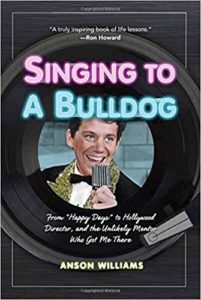
Singing to a Bulldog: From
Happy Days to Hollywood Director, and the Unlikely Mentor Who Got me There
I’ve never found a book. I’m sure there are books out there that will help people to connect but for me, I wrote one, it’s called Singing to a Bulldog. One of the most important people in my life was my janitorial boss when I was in high school. He was an uneducated African-American man in his 50s, functioning alcoholic. He used the janitorial room as the talk room. When I was going through a bad period of my teenage years, he talked me to it and he helped me find me. When I got done with that job, I knew who I was and I knew where I was going. He’s an unsung hero. It’s not a book that helped, it’s a person. What I want to tell everyone is you are going to get your answers from the most outside person. It’s going to be the billionaire or the person who has the great bio, it’s going to be some person you would never expect to be open. Be open to that teaching. If you feel a connection with someone, let them talk to you. You’re going to get your answers from the most outside source. I did.
It was not a book. It was the talking room, the janitorial closet in the office at the school. Do you have a mantra? Do you have a saying? Do you have anything that you tend to pass on to your kids or to others that means to you anything that you think others could benefit from hearing?
See what you have, not what you don’t have.
You’ve said that a couple times in this interview and I like it. It’s really true, see what you have, because so many people wait for everything to be right, for everything to be lined up for. You’re never going to be there, so you may as well just start where you are with what you have. See what you have, not what you don’t have. It’s a super good advice for entrepreneurs.
It’s not created until it’s created. The other thing, don’t let the societal merry-go-round define you. We’re this little pinhead in the universe.
What do you mean by that?
Meaning, society will say, “You’ll make it. You won’t make it. Here’s the right way. Here’s the wrong way.” All they know is what’s been done, not what hasn’t been done. Society just innately limits you in thinking. It’s a negative input. Don’t listen to it. Get past it. There is an it factor. There is something much larger than us that get out of that small-mindedness, get out of that societal merry-go-round of limitation. Connect with it so you can feel that push forward. There’s a metaphysical part of this.
Is there any place you want people to go and find you or see what you’re doing or buy your products? Is there a mothership of where they can go?
Now everything’s turning around. I’m so bad with all that social media and all that. They can go to AlertDrops.com and learn all about that because we’d been saving a lot of lives with that particular product that I developed with Dr. Heimlich, my uncle from the Heimlich maneuver.
When you’re ready, we’ll have you back on and you can talk about the road. You can talk about the highway.
Yes, big time.
I’d love to have you back in. People would love to hear what is this. It’s great to hear your voice, a voice that is so familiar to everybody. It’s great to hear these stories. Anson Williams like myself is a storyteller. There’s gold in these stories for people who want to make it over the long haul. There is no flash in the pan or if it is, if you have a flash in the pan and you make a bunch of money doing one thing, you know how many people I know who have done that and then they’ve never been able to duplicate it. Read these stories of a veteran, of somebody who’s done a whole bunch of things in different industries and done them successfully.
Anson Williams, thank you so much for being on the program. We’re helping you find ways to build your business, to grow your business and most importantly, build a business that can be bigger than you. One that works harder for you than you have to work for it, so you can enjoy not only building it but all the benefits that come along with successful business ownership. I will see you again next time.
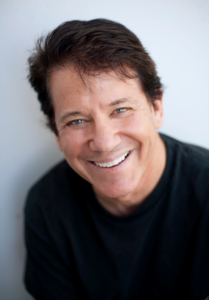
About Anson Williams
Best known for his Golden Globe nominated role as Warren “Potsie” Weber on the series Happy Days, Anson Williams is also an award-winning television director and writer as well as a singer and producer. He has directed more than 300 hours of television for a variety of series, including Beverly Hills 90210, Sabrina the Teenage Witch, and The Secret Life of the American Teenager. He won the prized Humanitas Award for his writing, has been honored by the United States Patent and Trademark Office, and served on the board of the USO. Together with business partner JoAnna Connell he founded an international product company.
Links Mentioned
- Anson Williams
- ICM
- IFA
- William Morris
- Happy Days on IMDB
- The Odd Couple on IMDB
- Alert Drops
- Singing to a Bulldog
- AlertDrops.com
- AaronScottYoung.com
- The Unshackled Owner Twitter
- The Unshackled Owner Facebook
- Aaron Scott Young LinkedIn


